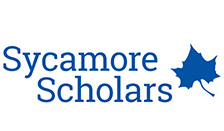Keywords
Diagnostic testing and physical examination, upper extremity, patient-reported outcomes, manual techniques
Abstract
Scapular dyskinesis is an abnormal movement of the scapula due to poor motor control of the surrounding musculature and can lead to other glenohumeral pathologies. The pathology results in the lateral tilting of the scapula during many glenohumeral joint movements and weight-bearing activities of the upper extremity (i.e., plank). The typical conservative treatment protocol focuses on strengthening surrounding musculature and is often a lengthy protocol. A weakness of strengthening protocols is the failure to address the motor function of targeted muscles at the level of the central nervous system (CNS) to restore dynamic stability and motor control. Reactive Neuromuscular Stabilization (RNS) is a novel treatment that targets the CNS to address motor control impairments to restore the normal muscular and joint stability and function. Purpose: The purpose of this case study was to demonstrate the efficacy and the outcomes of using RNS as a treatment for dysfunctions such as scapular dyskinesis. A 20-year-old female intercollegiate swimmer presented with significant mid-back pain that failed to resolve without treatment. The patient was diagnosed with scapular dyskinesis as well as presented with a number of postural concerns, trigger points, and pain with multiple activities. The initial protocol for treatment for this patient was a standard conservative treatment protocol focused on strengthening. After six weeks of treatment without improvement, the clinician modified care to include RNS. Following three treatments across seven days, the patient’s symptoms decreased significantly and the patient met discharge criteria. At an eleven-month follow-up, the patient’s improvements were maintained. The patient in this case report demonstrates the effectiveness of RNS while treating scapular dyskinesis and the importance of recognizing the cause of the dysfunction early within the evaluation.
Recommended Citation
Powell, Alli Z. and Baker, Russell T.
(2019)
"Treatment of Scapular Dyskinesis with Reflexive Neuromuscular Stimulation: A Case Report,"
Clinical Practice in Athletic Training: Vol. 2:
Iss.
3, Article 4.
Available at:
https://scholars.indianastate.edu/clinat/vol2/iss3/4

